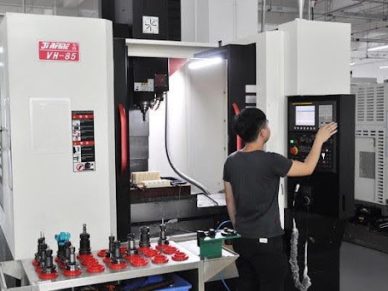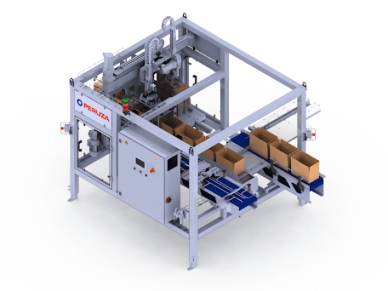
Emerging technologies are reshaping the landscape of semiconductor markets in unprecedented ways. Understanding these shifts is crucial for business professionals navigating this rapidly evolving industry. This article delves into the importance and relevance of these technological advancements.
The semiconductor industry is experiencing transformative changes driven by a wave of emerging technologies. As a business professional, you must stay informed about how these innovations are affecting market dynamics. In this article, we will explore key trends and their implications for the semiconductor sector.
Advancements in artificial intelligence
Artificial Intelligence (AI) is one of the most significant drivers of change in the semiconductor market. AI’s increasing demand for computational power has accelerated the development of advanced semiconductors meant to handle complex algorithms and data processing tasks. This surge in demand is creating opportunities for businesses to innovate and expand their product offerings. Additionally, AI’s role in optimizing production processes cannot be overstated, especially when considering about supply chain disruptions and other common mishaps that hold up the process.
Machine learning and deep learning algorithms are pushing the boundaries of what’s possible with AI, creating a demand for more specialized AI chips. These chips, often referred to as AI accelerators or neural processing units (NPUs), are designed to efficiently handle the complex computations required for AI tasks. As a result, semiconductor companies are investing heavily in research and development to create faster, more efficient, and more powerful AI-specific chips. This trend is not only reshaping the semiconductor market but also opening up new avenues for innovation across various industries, from autonomous vehicles to advanced robotics.
The rise of 5G technology
The rollout of 5G technology is another major factor impacting the semiconductor market. As 5G networks become more widespread, there is a growing need for semiconductors that can support higher data speeds and increased connectivity. This technological leap presents numerous opportunities for companies to develop new applications and services that leverage the enhanced capabilities of 5G networks.
The impact of 5G extends beyond just faster mobile internet speeds. It’s enabling a new era of connectivity that will transform industries and create new business models. Semiconductor companies are at the forefront of this revolution, developing chips that can handle the increased bandwidth and lower latency requirements of 5G networks. This technological shift is creating a ripple effect across the entire tech ecosystem, driving innovation in areas such as edge computing, augmented reality, and smart cities. As a result, businesses in the semiconductor industry are not only focusing on producing 5G-compatible chips but also on creating integrated solutions that can power the next generation of connected devices and services.
Internet of things (IoT) proliferation
The proliferation of Internet of Things (IoT) devices is driving demand for specialized semiconductors tailored to various applications. IoT devices require efficient, low-power chips to function effectively across diverse environments, from smart homes to industrial automation systems. For business professionals, understanding the nuances of this demand can help identify potential areas for growth and innovation within the semiconductor market.
The IoT ecosystem is becoming increasingly complex, with devices ranging from simple sensors to sophisticated edge computing nodes. This diversity is driving the need for a wide array of semiconductor solutions, from ultra-low-power microcontrollers for battery-operated devices to high-performance processors for edge AI applications. The challenge for semiconductor companies lies in developing chips that can balance power efficiency, performance, and cost-effectiveness across this spectrum of IoT devices. Additionally, as IoT devices become more prevalent in critical infrastructure and industrial applications, there’s a growing emphasis on developing chips with enhanced security features to protect against cyber threats. This focus on IoT-specific semiconductor solutions is creating new market segments and opportunities for specialization within the industry.
Sustainability and environmental impact
Sustainability is becoming increasingly important in the semiconductor industry. As environmental concerns rise, companies are being pressured to adopt greener practices and develop eco-friendly products. Emerging technologies are enabling more energy-efficient manufacturing processes and materials, helping to reduce the environmental footprint of semiconductor production. Staying ahead in this area not only enhances corporate responsibility but also meets the growing consumer demand for sustainable products.














Leave a Reply